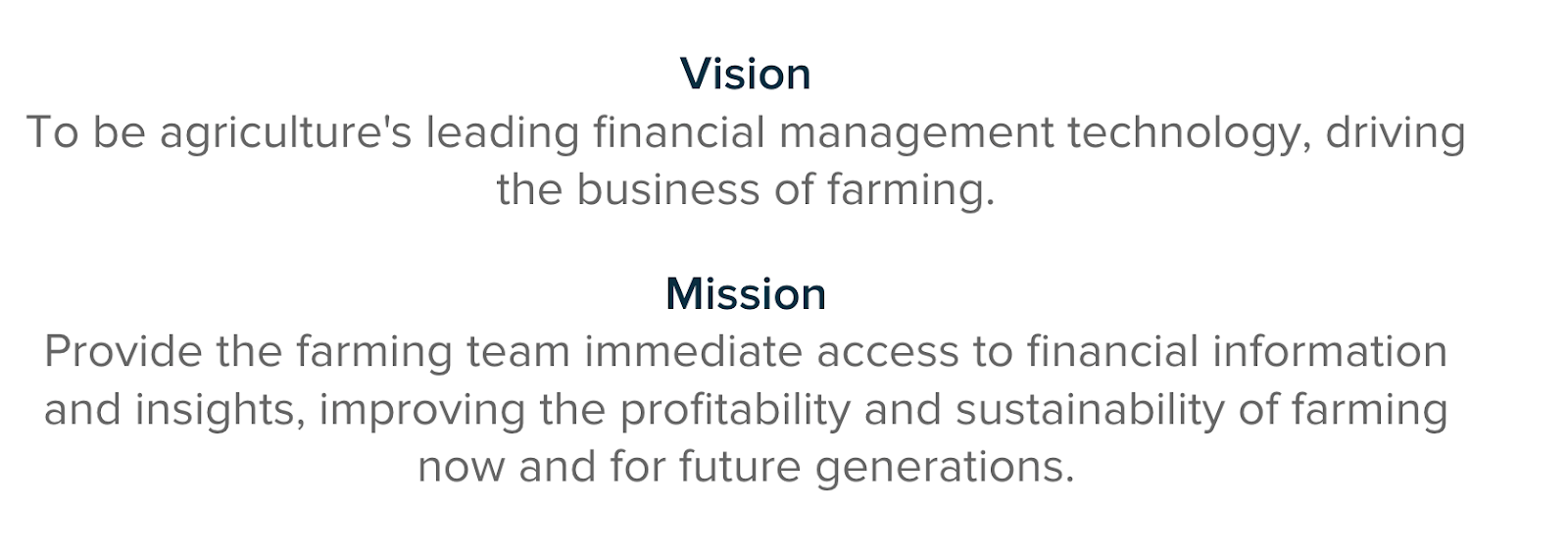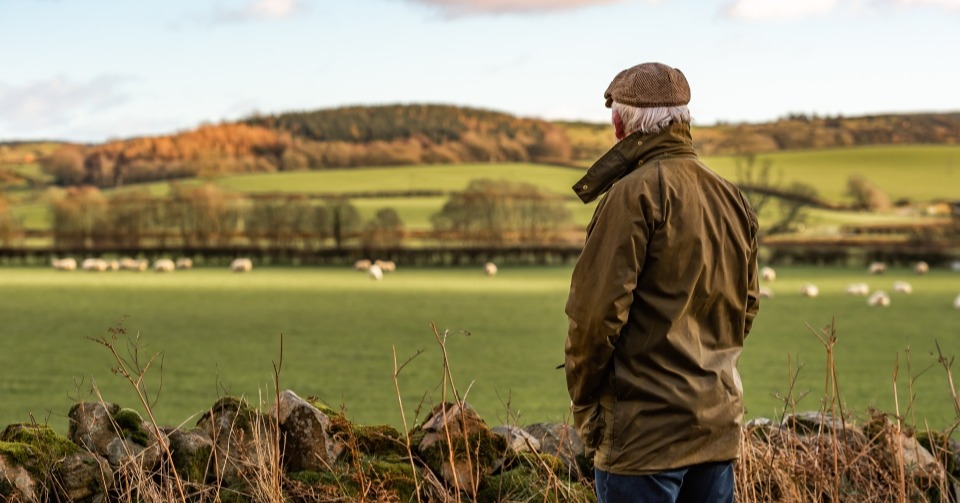By Tom FitzGerald, Partner Success Manager
“People working on farms are already mechanics, soil scientists, accountants, agronomists and livestock husbandry specialists. However, new technologies that will pave the way to greater efficiency will mean farm businesses will require data analysts, specialist skills in drone operation, robotics, GPS systems and aerial analysis, to name a few.” - David Fursdon
A key topic of discussion at the recent IAgrM conference was how to face the challenges of the shifting agricultural funding landscape, which will see many farming businesses face real difficulties if they don’t sharpen their approach quickly. One of the great things about the conference was the depth of discussion on the importance of getting the right plan, culture and team in place to take the sector forward.
Many of the speakers were highlighting their own approaches to ensuring their businesses were fit for the future, from diversification to farming practices. For Figured, the unifying factors were clear leadership, sharing of information amongst peers, and the vital role that advisers will need to play to support clients.
David Fursdon, Chairman of Dyson Farming & The Institute of Agriculture and Horticulture (TIAH) stated that “People working on farms are already mechanics, soil scientists, accountants, agronomists and livestock husbandry specialists. However, new technologies that will pave the way to greater efficiency will mean farm businesses will require data analysts, specialist skills in drone operation, robotics, GPS systems and aerial analysis, to name a few.”
We’ve distilled our take on all the discussions of the day - here are four areas that leaders can use to get their farming business fit for the future.
Building the business plan and the vision
One of the most significant challenges facing farmers in the UK today is the removal of the Basic Payment Scheme subsidy, presenting a very real threat of dramatically reduced farm profitability. The business case for understanding your farm finances is therefore strong - use this to your advantage.
Start by writing down the big questions first. How would we construct the business if we started today? What are we good at? Where do we make money and lose money? How clear are we on the costs and benefits of crops, activities and inputs? Are we supplying commodity products without real selling power? Where can we add more value?
Don’t try to answer all the questions yourself, work with others on the problems and engage their views - it will help with engagement and buy-in to the plan as it forms. Talk to others who have changed their businesses, both to get ideas and especially to hear about what it was like to make changes, how challenges were overcome, etc. Talk to and listen to as many people as possible. It’s always helpful to think in terms of timeframes - 3 / 5 / 10 years - where do you want to be? Especially thinking longer-term drags you away from incremental thinking.
Develop the vision: If done well it is pragmatic, focused and energising for the team. The vision statement describes what your organisation will look like in the future. It serves as a guiding light that depicts the kind of future to which your business aspires. It also provides direction to everyone in the organisation as they focus their efforts on achieving the vision. The BBC’s vision statement is a good example: ‘To be the most creative organisation in the world’.
A mission statement supports the vision and describes what an organisation does and for whom.
It’s worth having a vision in mind and then testing this as you speak to others and advisers. Keep coming back and refining this as you progress through the business case. Keep it ambitious but realistic.
Here is Figured’s vision and mission as an example, that guides our strategy and our decisioning.

For a family farm business, this could be a vision linked to succession - passing on a profitable and sustainable business to the next generation. For a livestock producer, it could be to be a leading producer of the highest quality produce and the mission is about how you do this in the most efficient and sustainable way possible. You are not fixing it forever - progress beats perfect - but if you can have a vision to come back to when you make decisions it is helpful for everyone.
Set audacious goals
Connected to the vision and mission is the importance of goal setting to track your progress and rally your team. All of the successful businesses we saw at the conference, and indeed see when we work around the country, have a clear direction in how they are going to deliver their business plan. Turning the work you have done on paper into action on the farm requires deliberate planning.
This is an especially important area to engage the team in. You may be surprised how ambitious (or not…) team members are when you start to set this in place. Keep it clear and ambitious but achievable. If you get to the end of the year and have achieved everything, have you really been ambitious enough - it’s about energy, drive, ambition and getting change done.
An important cultural point here is that it is also okay to make mistakes, changing the farming business is about learning and developing and this always means mistakes happen.
Build and support your team
Look at the team you have on the farm at the moment, both in terms of the employed and contracted workforce. What skills are they bringing to your business and more importantly, what gaps are you identifying? Having a workforce that is very skilled in one area is great, but you might be exposing yourself to risk in another - and this could be a real opportunity to strengthen your business. Look for a balanced team with a variety of perspectives, diversity of opinion is a good thing.
Think about the culture you want to promote within your business, this is often a mirror to your own practices. It is important to instill the right ethos and accountability for actions and decisions. Remember, it’s the day-to-day actions, and hundreds of decisions made by every member of the team that are the most critical in shaping your business - not just the actions and decisions of the business leader. If you enable your team to help make decisions and to work through problems they will learn and you will get more buy-in.
Making your farming business a great place to work is critical given the labour challenges many are facing and having a business where team members have the right equipment, ongoing training and a culture of support and personal growth will really help to make your business somewhere that can retain talent. It’s not all about new toys but all great employees want to work in a business that is going somewhere, with a leader they respect.
It's no secret that telling people to change doesn't really work! If people aren’t involved in the change, don’t believe in it, don’t feel part of it, or simply don’t understand it, it will fail. However, by communicating the nature of the change, the reasons why it is needed and steps to be taken; these act as the motivation to change.
Choose great advisers to challenge and work alongside you
Regarding the right advisers, many farms have used the same people for a long time. Ask yourself what everyone adds, do you need to bring new perspectives in, or just giving advisers permission for a more fundamental or challenging view can make a big difference. As you look at new or adjusted areas for the business make sure you are getting a diversity of views.
We see the power of good advisers in action when we look at cloud adoption amongst our partners and customers. The business case for moving farm financial management to the cloud is strong: it enables you to understand where the business is heading, the farming team can collaborate, it's in real-time, it's highly secure and Making Tax Digital is now compulsory for an increasing number of farm businesses.
It is perfectly normal to feel you don’t feel ready to make that change, or don’t know where to start. That is where partnering with the right adviser becomes critical. Look for advisers who are aligned to your philosophy but aren't just telling you what you want to hear. Don’t just accept the status quo, look for leadership.
On a closing point, the feeling of the 2021 IAgrM conference was one of optimism. Not misplaced optimism given the scale of the challenge, but that with careful thought and planning farming businesses can develop and prosper in this period of change.
Get in touch with us to find out how you can get clarity and control over the numbers in your farming business with Figured's farm financial management software.


